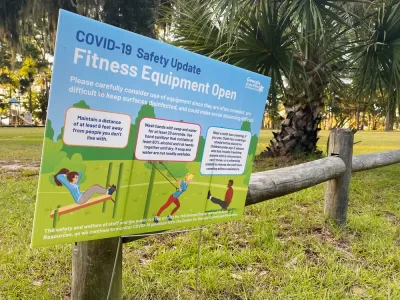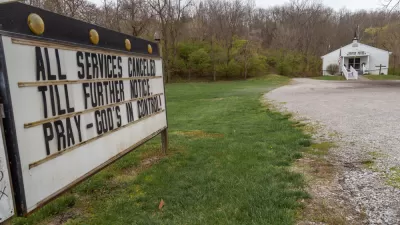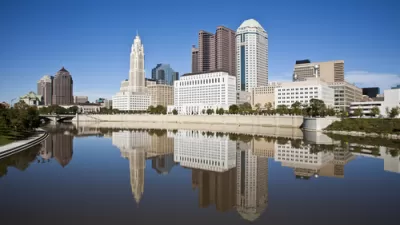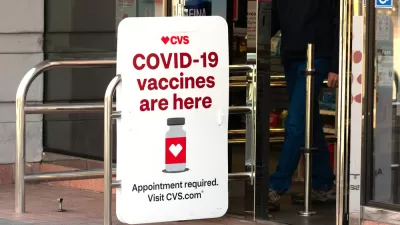Local parks and green spaces that enable safe social distancing have never been more important to people living in cities. The Trust for Public Land has released a new report showing their importance and the challenges they are facing.

"The Centers for Disease Control and Prevention now lists visiting parks and recreational facilities — particularly those 'parks that are close to your home' — as a way to protect yourself and others from covid-19," writes Christopher Ingraham for The Washington Post.
But for tens of millions of Americans, that’s easier said than done; according to the Trust for Public Land (TPL), a nonprofit group that works to protect parks and other outdoor public spaces roughly 100 million Americans don’t have a public park within a 10-minute walk of their home.
“For far too many communities, quality green space where families can recreate and practice social distancing is simply not available,” said Diane Regas, the president and chief executive of TPL.
Ingraham is long familiar with the importance of parks and public health, reporting on studies linking spending time in green spaces with an enhanced sense of well-being and increased happiness. Unfortunately, like so many other urban amenities and necessities, a major problem is the inequitable access to urban green spaces.
Using CDC data, for instance, Brookings Institution researchers found that, at the metropolitan-area level, “regions with lower park access tend to have higher poverty rates.”
Studies also have shown that areas that are whiter, richer and more highly educated also have better access to urban green spaces.
TPL, whose mission includes "creating parks for people, ensuring healthy, livable communities for generations to come," has released a 16-page special report, "Parks and the Pandemic" (free download after agreeing to accept monthly newsletter).
The pandemic highlights that in too many communities, access to the outdoors is considered a privilege when it should be a right. With the data to pinpoint where parks are most needed, we can transform the outlook for outdoor equality across the nation.
Related in Planetizen:
FULL STORY: Pandemic underscores how public parks shape public health

Maui's Vacation Rental Debate Turns Ugly
Verbal attacks, misinformation campaigns and fistfights plague a high-stakes debate to convert thousands of vacation rentals into long-term housing.

Planetizen Federal Action Tracker
A weekly monitor of how Trump’s orders and actions are impacting planners and planning in America.

In Urban Planning, AI Prompting Could be the New Design Thinking
Creativity has long been key to great urban design. What if we see AI as our new creative partner?

‘Architectural Epidemiology:’ Centering Public Health in Urban Design
A new book asks, what if cities were designed around health equity?

Study: London Low-Traffic Neighborhoods See 35% Drop in Road Injuries
London’s effort to reduce speeds and limit vehicles in parts of the city are contributing to improved road safety.

Dorm-Style Housing: A Solution for DC’s Vacant Office Buildings
Adapting office buildings to dorm-style housing with shared spaces is a much more affordable option than repurposing offices into apartments.
Urban Design for Planners 1: Software Tools
This six-course series explores essential urban design concepts using open source software and equips planners with the tools they need to participate fully in the urban design process.
Planning for Universal Design
Learn the tools for implementing Universal Design in planning regulations.
Gallatin County Department of Planning & Community Development
Heyer Gruel & Associates PA
JM Goldson LLC
Mpact (founded as Rail~Volution)
City of Camden Redevelopment Agency
City of Astoria
Jefferson Parish Government
Camden Redevelopment Agency
City of Claremont





























